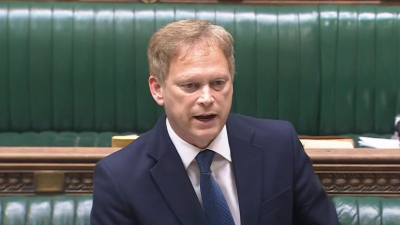Arizona's seismic decision to enact a near-total ban on abortions reverberates through the nation following a landmark ruling by its supreme court, resurrecting a law from the depths of the Civil War-era. The echoes of an 1864 statute, which once lay dormant, now resound with profound implications, criminalizing abortions except in cases where the mother's life hangs in peril, with no exemptions granted for pregnancies stemming from rape or incest. The repercussion for physicians found performing such procedures is dire, facing potential sentences ranging from two to five years behind bars.
This judicial upheaval has ignited a political firestorm, with Democrats and President Joe Biden casting blame upon the shadows of the past administration, attributing the ruling to the influence of former President Donald Trump's appointments to the US Supreme Court. President Biden, denouncing the ruling as "cruel," lambasts the "extreme agenda" of Republican officials, accusing them of stripping away women's liberties.
Kris Mayes, Arizona's Democratic attorney general, decries the ruling as a dark blemish on the state's history, lamenting the regression to an era where women's voices were silenced and their rights disregarded. This decision thrusts Arizona into the vanguard of a contentious national debate, as fourteen other states have already seized upon the 2022 ruling that dismantled the landmark Roe v. Wade case to enact sweeping prohibitions on abortion throughout all stages of pregnancy.
The legal saga traces back to 1973 when a lower Arizona court initially blocked the enforcement of the Civil War-era law. Subsequent legislative efforts in 2019 sought to supersede it, imposing restrictions on abortion after 15 weeks. However, the tides shifted with the overturning of Roe v. Wade, as a Republican attorney general spearheaded the push to lift the injunction on the 1864 statute, sparking a legal conundrum over conflicting laws.
In a contentious 4-2 ruling, Arizona's supreme court declared the current 15-week ban null and void, asserting its dependence on a federal constitutional right to abortion, which has since been renounced. With no legal barriers in federal or state law, the 1864 ban now stands unchallenged, reshaping the landscape of reproductive rights in Arizona and beyond.
In the wake of Arizona's contentious abortion ruling, Democrats both within the state and across the nation have rallied to defend and preserve abortion rights. Pledging unwavering resistance, they vow to champion the cause through legal avenues and grassroots activism. In Arizona, campaigners have swiftly mobilized, advocating for a pivotal amendment to be placed on the November election ballots, aiming to safeguard reproductive freedoms amidst the shifting legal landscape.
Contrasting voices emerge as the Center for Arizona Policy, a staunch advocate for anti-abortion measures, hails the court's decision as a validation of the sanctity of life. They assert that the ruling shields women from the purported physical and emotional tolls of abortion, framing it as a stance in defense of human dignity.
Meanwhile, the White House announces Vice President Kamala Harris's imminent visit to Arizona, signaling the administration's commitment to engaging in dialogue on the critical issue of abortion rights. As the political arena heats up, with the looming presidential election casting its shadow, contrasting viewpoints continue to clash.
Former President Donald Trump, poised to challenge President Joe Biden in the upcoming election, reiterates his stance on abortion laws, advocating for a decentralized approach where states retain autonomy in shaping policies. While expressing pride in the overturning of Roe v. Wade, Trump underscores his support for exceptions in cases of rape, incest, and maternal health risks, navigating a delicate balance between ideological principles and pragmatic considerations.
In this charged atmosphere, the battle over abortion rights rages on, with Arizona serving as a focal point in the larger national struggle. As Democrats mobilize to protect reproductive freedoms and conservative voices applaud the court's decision as a victory for life, the stage is set for a protracted and impassioned debate. With Vice President Kamala Harris's impending visit underscoring the issue's significance on the national agenda, and with the specter of the upcoming election looming large, the future of abortion rights in America hangs in the balance.







